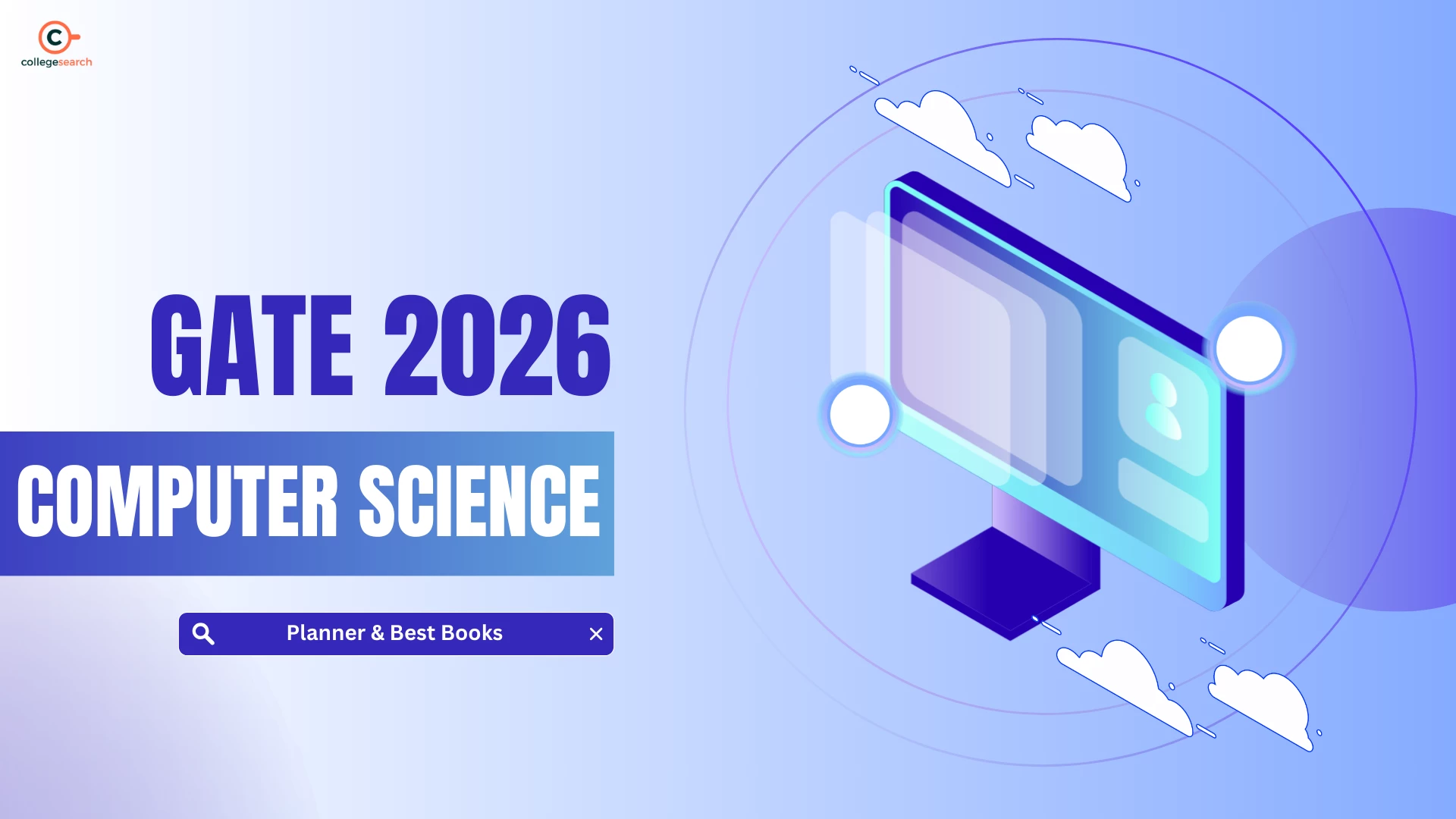In order to prepare for the GATE Computer Science exam, students will need a systematic plan that covers conceptual learning, solving problems, and frequent revision. First, go through the syllabus, and GATE previous years’ papers, to identify key topics that have highest weightage like Algorithms, Operating Systems, Databases, and Computer Networks. Candidates are advised to spend the first couple of months on developing their understanding on the core GATE 2026 subjects using best reference books and video lectures.
Students can, at the same time, complete the problem-solving section to develop accuracy and speed. As aspirants move forward with their studies GATE 2026 Computer Science preparation, they should start to incorporate consistent daily practice for Engineering Mathematics and Aptitude, as these can lead them to obtain better results. Always keep a formula notebook to refer back to just before the GATE 2026 exam. In the last two months of GATE Computer Science preparation, take a few mock tests to practice effective time management, and use this time to reflect on the most common questions.
GATE Computer Science Preparation Plan
Students must have a dedicated preparation plan if they want to succeed in the GATE computer science exam for the 2026 academic year. To go through a detailed and smart preparation plan for the computer science paper of GATE, students may refer to the following.
Month | Focus Areas | Study Tasks | Practice & Revision |
September 2025 | Core Subjects (OS, DBMS, CN, DS, Algo) | Read standard textbooks, watch lectures, make short notes | Solve topic-wise PYQs (2010 - 2024), start with easy-level problems |
October 2025 | Programming & Advanced Concepts | Cover Theory of Computation (TOC), Compiler Design, Software Engineering | Daily practice of DS & Algo questions, weekly PYQ revision |
November 2025 | Mathematics + Remaining Subjects | Study Discrete Math, Probability, Linear Algebra, Digital Logic, COA | Attempt subject-wise tests, build formula sheet |
December 2025 | Integration Phase | Revise all completed subjects, focus on interlinked topics (Algo+DS, OS+CN, TOC+Compiler) | Take sectional mocks, analyze errors, update notes |
January 2026 | Mock Test & Revision | Attempt full-length mocks every 2 - 3 days | Revise formula notebook, improve weak areas, track time management |
Feb 2026 (Exam Month) | Final Touch | Quick revision of notes, formulae, and shortcuts | Attempt 5 - 6 full-length mocks under exam conditions |
Common Mistakes to Avoid in GATE CS Preparation
- Ignoring Engineering Mathematics and General Aptitude (these carry 30% weightage).
- Too many resources instead of sticking with standard books.
- Ignoring previous year questions (PYQs), only focused on theory.
- Not revising regularly - forgetting concepts/formulas which you learned long ago.
- Over-attempting mocks/exams, leading to negative marking.
- Leaving low-weightage subjects (Compiler Design, Software Engineering) - still gives you easy marks.
- Time management in mocks and exams.
- Memorizing instead of understanding, especially in Algorithms, TOC, OS.
- Starting too late with mock tests (at least 2 to 3 months prior to exam).
- Not maintaining your health, sleep, and stress during preparation.
Also Read: Mastering GATE Biotechnology 2026: Your Complete Study Guide
GATE Computer Science Paper 2026 | Subject Wise Weightage
Students can check out the subject or topic wise weightage for GATE 2026 paper of Computer Science below. Aspiring candidates are advised to prioritize the highest weightage topics to secure higher marks in GATE exam.
Subject | Average Weightage (Marks) |
Algorithms & Data Structures | 8 to 12 |
Computer Networks | 7 to 10 |
Operating Systems | 7 to 9 |
Databases (DBMS) | 6 to 8 |
Theory of Computation (TOC) | 6 to 8 |
Compiler Design | 2 to 4 |
Computer Organization & Architecture (COA) | 6 to 8 |
Digital Logic | 5 to 7 |
Software Engineering | 1 to 2 |
Engineering Mathematics | 12 to 15 |
General Aptitude | 15 |
Best Books to Prepare for GATE CS Paper
Students must refer to the best books for GATE Computer Science preparation to maximize their scores. The following table comprises some of the best books for every concept included in the GATE CS paper.
Subject | Recommended Books |
Algorithms | Introduction to Algorithms – Cormen et al. (CLRS) |
Data Structures | Data Structures – Seymour Lipschutz (Schaum’s) |
Operating Systems | Operating System Concepts – Silberschatz, Galvin |
Computer Networks | Computer Networking: A Top-Down Approach – Kurose & Ross |
Databases (DBMS) | Database System Concepts – Korth & Sudarshan |
Theory of Computation | Introduction to Automata Theory – Hopcroft, Ullman |
Compiler Design | Compilers: Principles, Techniques, Tools – Aho, Lam, Sethi (Dragon Book) |
COA | Computer Organization – Carl Hamacher |
Digital Logic | Digital Logic and Computer Design – Morris Mano |
Software Engineering | Software Engineering – Ian Sommerville |
Engineering Mathematics | Higher Engineering Mathematics – B.S. Grewal |
Note: Succeeding in GATE Computer Science requires more than hard work; it calls for smart work, consistency, and a careful, smart, plan of preparation. If aspirants know what concept to study and how much weight they carry, analyze the GATE 2026 exam pattern, refer to the right books, and follow a dedicated study plan, they can work towards maximizing their chances of success.

